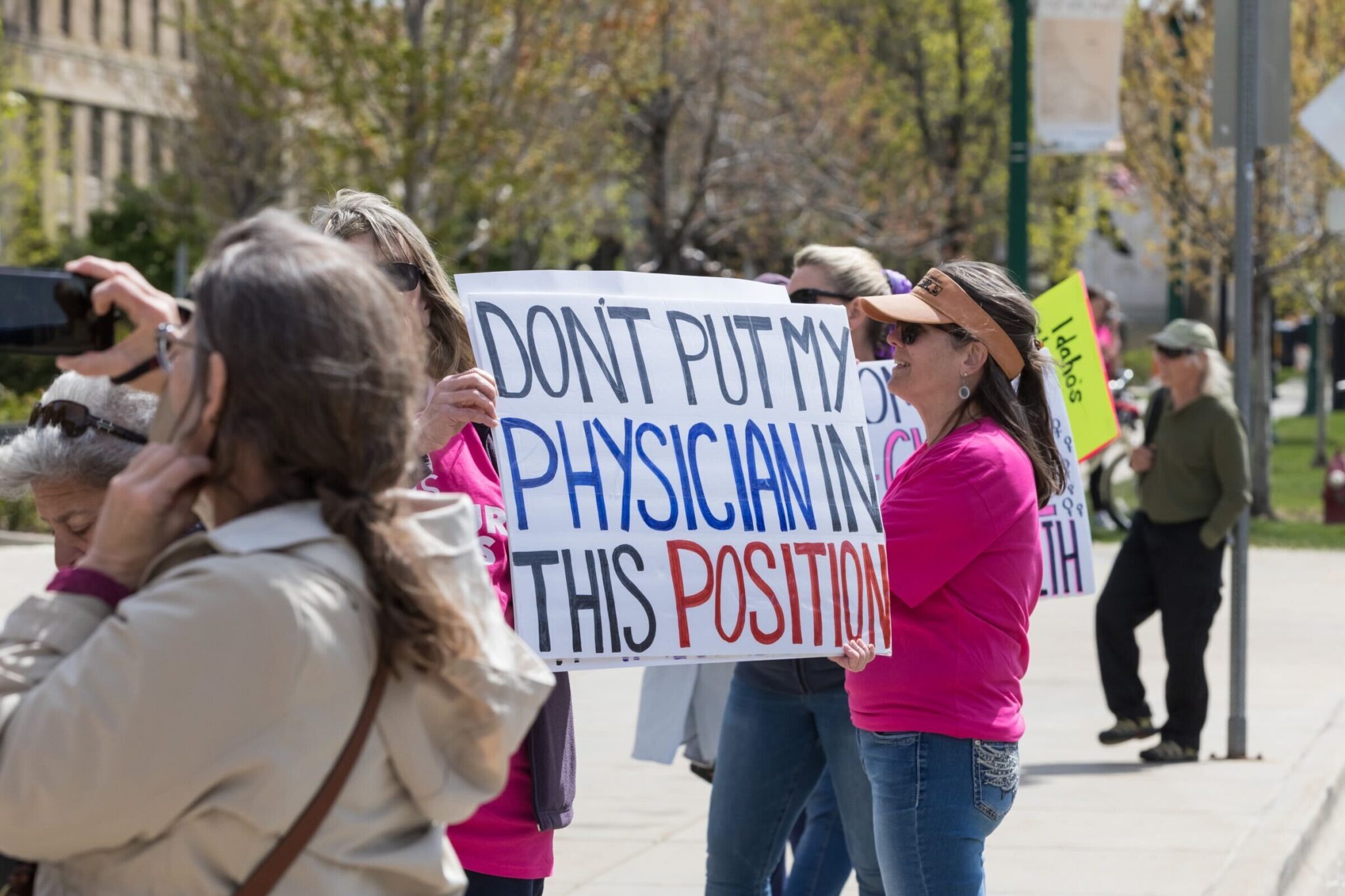
John Hult/South Dakota Searchlight
A U.S. Supreme Court ruling that shields emergency room doctors from prosecution under Idaho’s near-total abortion ban won’t have any immediate impact on South Dakota, according to Republican Attorney General Marty Jackley.
The court did not rule on the underlying arguments in the case, but rather remanded it back to the Ninth Circuit Court of Appeals on a technicality.
“Because the Supreme Court did not reach the merits of the case, there’s no impact on South Dakota law at this point,” said Tony Mangan, spokesperson for Jackley.
South Dakota, like Idaho, has a near-total ban on abortion. There is an exception that allows abortion to save the life of the mother, but lawmakers rejected an attempt to define “life of the mother” in 2023. Rep. Taylor Rehfeldt, R-Sioux Falls, had introduced a bill to offer clarity to medical providers on when the exception applies, but it was tabled in the face of opposition from anti-abortion lawmakers.
South Dakotans are set to vote on a ballot measure that would restore abortion rights in November’s general election, pending a legal challenge from anti-abortion activists seeking to disqualify the measure.
The Idaho case originated in 2022, soon after the U.S. Supreme Court’s Dobbs decision, which overturned Roe v. Wade and returned regulation of abortion procedures to the states.
The U.S. Department of Justice sued Idaho to block it from enforcing its abortion ban for emergency room physicians who might need to perform an abortion when a pregnant patient is at risk of infection or other potentially serious health problems.
The department argues that prosecuting physicians under those circumstances would violate the federal Emergency Medical Treatment and Labor Act, or EMTALA, which requires Medicare-funded hospitals to treat patients who come to an emergency room regardless of their ability to pay.
This week, the high court ruled 6-3 that it had taken the case too early. A lower court judge had granted an injunction, blocking the Idaho abortion ban from taking effect. The Supreme Court dropped that injunction when it agreed to take the case, leaving doctors open to prosecution.
This week’s decision reinstated the lower court’s injunction, the merits of which will now be argued before the Ninth Circuit.
